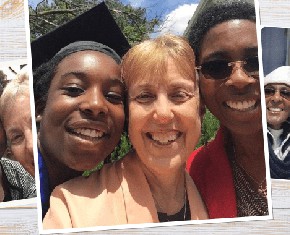The views expressed in our content reflect individual perspectives and do not represent the authoritative views of the Baha'i Faith.
Understanding the Baha’i writings requires literacy—and living in this material world requires financial literacy.
But financial literacy is taught rarely in schools. Here’s a financial literacy quiz—try to answer these three simple questions about personal finance:
1. Do you think that the following statement is true or false? Buying (a) a single company stock usually provides a safer return than (b) a stock mutual fund.
2. Suppose you had $100 in a savings account and the interest rate was 2% per year. After 5 years, how much do you think you would have in the account if you left the money to grow: (a) more than $102, (b) exactly $102, or (c) less than $102?
3. Imagine that the interest rate on your savings account was 1% per year and inflation was 2% per year. After one year, would you be able to buy (a) more than, (b) exactly the same as, or (c) less than today with the money in this account?
The correct answers are 1b, 2a and 3c. How did you do on the quiz?
You might be surprised, then, to learn that very few people follow these three basic financial recommendations: paying off debts in a timely manner, budgeting and living within one’s means, and setting aside savings for retirement. In surveys, only 25% of respondents knew the correct answer to those three simple questions—and only 3% followed the basic financial recommendations. How can we remedy these low levels of financial knowledge and behavior?
The Baha’i teachings have answers; and those answers focus on engaging in productive work, practicing economy and paying off debts:
Trust in God and engage in your work and practice economy; the confirmations of God shall descend and you will be enabled to pay off your debts. – Abdu’l-Baha, Baha’i World Faith, p. 375.
Every person must have an occupation, a trade or a craft, so that he may carry other people’s burdens, and not himself be a burden to others. – Abdu’l-Baha, from a tablet to an individual Baha’i.
The Baha’i teachings ask us to avoid the lure of riches and be content with what we have:
O Son of Being! Busy not thyself with this world, for with fire We test the gold, and with gold We test Our servants. – Baha’u’llah, The Hidden Words, p. 16.
Put away all covetousness and seek contentment; for the covetous hath ever been deprived, and the contented hath ever been loved and praised. – Ibid., p. 39.
Of course, not everyone understands the ins and outs of modern finance, which means we need to ensure that our financial advisors are trustworthy and have no conflicts of interest:
He must not rely implicitly upon the opinion of any man without investigation; nay, each soul must seek intelligently and independently, arriving at a real conclusion and bound only by that reality. – Abdu’l-Baha, The Promulgation of Universal Peace, p. 288.
Generally, the Baha’i teachings recommend a spiritual solution to the world’s economic problems that goes beyond materialistic considerations, and envision a unified future state of society where everyone will prosper:
… there will be a readjustment in the economic conditions of mankind so that in the future there will not be the abnormally rich nor the abject poor. The rich will enjoy the privilege of this new economic condition as well as the poor, for owing to certain provisions and restrictions they will not be able to accumulate so much as to be burdened by its management, while the poor will be relieved from the stress of want and misery. The rich will enjoy his palace, and the poor will have his comfortable cottage. – Abdu’l-Baha, The Promulgation of Universal Peace, p. 132.
These Baha’i teachings on economics have a singular goal—that no human being will be destitute:
First and foremost is the [Baha’i] principle that to all the members of the body politic shall be given the greatest achievements of the world of humanity. Each one shall have the utmost welfare and well-being. … This system is all thus ordered so that in the village the very poor will be comfortable, the orphans will live happily and well; in a word, no one will be left destitute. All the individual members of the body politic will thus live comfortably and well. – Abdu’l-Baha, The Promulgation of Universal Peace, p. 312.
Two hurdles need to be overcome for all humanity to learn financial literacy. First, we need to increase the general level of knowledge about financial affairs; and second, we need to increase the desire to learn. Of those who shun financial matters, spiritual people might be at the forefront. But it doesn’t have to be that way. The Baha’i Faith does not oppose wealth or financial security—in fact, wealth is encouraged providing it is used to achieve spiritual goals and not selfish desires:
Wealth is praiseworthy in the highest degree, if it is acquired by an individual’s own efforts and the grace of God, in commerce, agriculture, art and industry, and if it be expended for philanthropic purposes. – Abdu’l-Baha, The Secret of Divine Civilization, p. 24.
















Comments
Sign in or create an account
Continue with Googleor